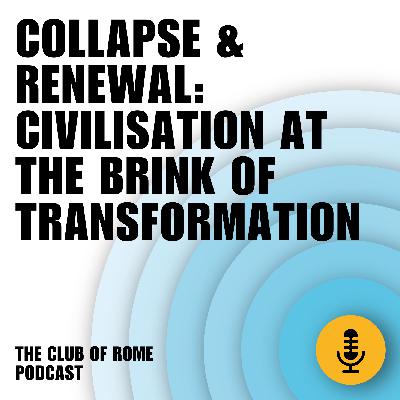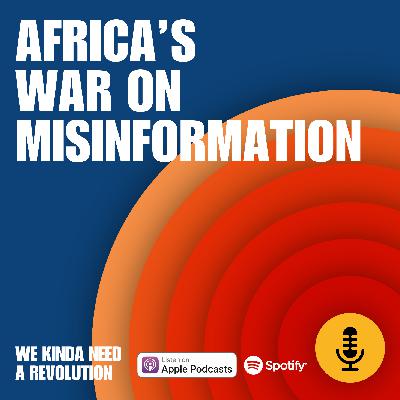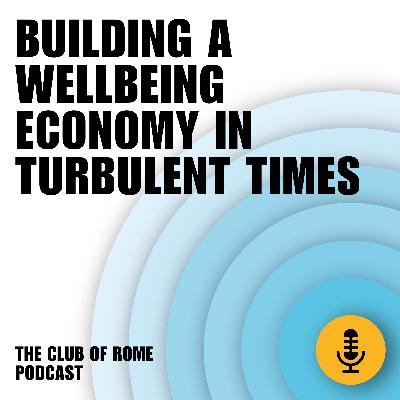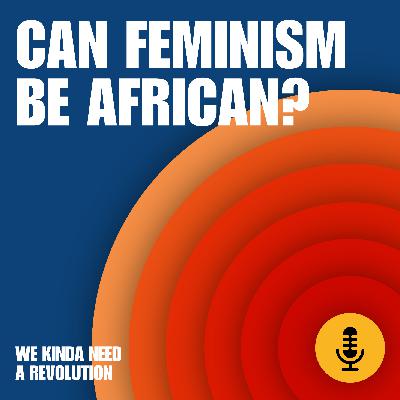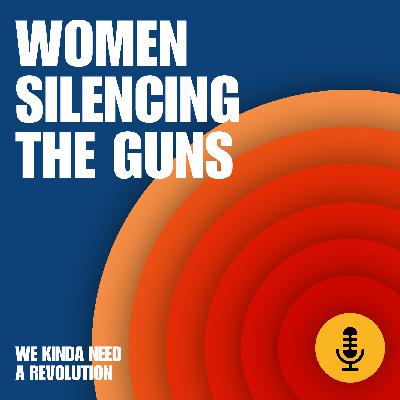Climate crises and public health in Africa with Saad Uakkas and Nolita Mvunelo
Description
The impacts of extreme weather events and climate crises are threatening many of the hard-won advancements in public health infrastructure across African countries.
In this episode of the special series ‘We Kinda Need a Revolution’, host Nolita Mvunelo is joined by Saad Uakkas, a medical doctor and executive chair of the African Youth Initiative on Climate Change. They discuss the profound effects of nature crises on public health and the urgent need for systemic solutions. Together, they explore the importance of intergenerational leadership in building resilient and sustainable public health systems.
This episode is part of a series highlighting the need for a New Generational Contract.
How can we foster equity and mutual support between generations? This is one of the key questions being asked by The Fifth Element, an initiative from The Club of Rome and partners. To find out more visit: www.thefifthelement.earth
Watch the video:
Full transcript:
Nolita: We kinda need a revolution. Welcome to this special edition of The Club of Rome Podcast exploring how we can work together across generations to mobilise action for a regenerative future. To get there, we need some systemic change, a revolution of sorts, maybe. I am Nolita Mvunelo, programme manager for The Club of Rome.
And in this episode, we'll be diving into the topic of public health in nature crises. Joining us today is Saad Uakkas a Moroccan medical doctor and a youth engagement and empowerment specialist. We're seeing a growing frequency of nature crises across the world. More recently, the floods in Kenya have resulted in a loss of over 230 lives and 40,000 households displaced. And similarly, in 2022 on the east coast of South Africa, flooding claimed over 300 lives. These events are catastrophic and pose a serious threat to the lives of many with far reaching impact tearing away hard won gains in public health and infrastructure. So I turn over to you Saad, firstly, thanking you for joining us and also asking you to briefly introduce yourself.
Saad: Dr Saad Uakkas here, I am the Executive Chair of the African Youth Initiative for Climate Change, which represents and unites African young people all over the continent. I'm also in the environment working group of the global Mental Health Action Network. So, working on the intersection of climate change and mental health on the global level. Medical doctor by background, climate actor by passion, and young African from Morocco, so great to be here.
Nolita: Thank you so much for joining us. So in January 2024, the World Economic Forum released a report quantifying the impact of climate change on human health, which projects that by 2050, climate change could result in an additional 14.5 million deaths and 1.1 trillion US dollars in extra health care costs. With your extensive experience as an MD working with young people on climate change issues, what specific health challenges have you observed, that could contribute to such significant impacts in the next few decades ?
Saad: I already started seeing that when I was a medical student seeing more respiratory diseases in the city I worked on Kenitra, which has really large industrial parts. And that was one example how pollution both air water pollution affected health of you know, the local population. So we have seen that we have see more people come in with also infectious diseases also that was something not only in Morocco, but all over the continents, you know, in the way that weather pattern change, and rains, patterns also change, this affects the habitats of vector-borne diseases. And also, when the weather is warmer, more insect-borne diseases can spread more easily and for longer periods. So this constitutes a huge threat for us in Africa, especially with all the neglected tropical disease with like infectious diseases like malaria, and those insects being able to live longer and in more places, you've been talking about disasters, you know, recently in Morocco, we had this earthquake, and you know, I remember people in Pakistan in Libya, with those floodings that they had in UAE, and you know, the houses that are being lost and the habitats and all those infrastructure, this usually has a direct impact on people's livelihood, on people's food security, and then the thing that I work most on, on people's mental health, and I can't tell you enough, how crucial that is, when you lose your house, when you lose your livelihood, your daily life. Here, we're talking, for example about farmers in the rural areas that don't have access to water to agriculture anymore. So livelihood lost, And they're obliged to migrate to find a new source of income. Those people usually they have huge mental health consequences out of that and with with psychologists with mental health professionals, we've been seeing that, you know, the need for mental health supports for people because of all the uncertainty because of all the impacts of climate change has been immense and then finally, you know, health systems and usually here we're talking about, you know, for example, the continents, we have hospitals and weak infrastructure, and especially in the rural areas, so the health system is not ready to cope up with the impacts of climate change. So when a disaster happens, resilience is not there. So usually you have a health system which loses electricity or which loses, you know, people lose access to hospitals, because of climates or disaster events, you know, when something related to climate change happens, people really get affected lose access to health, basic health care services, and it can affect them, you know, just losing access to medication can really have huge effects in your life if you're in a rural area. And then, of course, you have food security, you know, with the lack of water with all the effects of agriculture, food security is a very, very important one. So impacts of climate change on health, we can talk about a lot of aspects. And, you know, one thing is, recently, the World Health Assembly that happened in Geneva, recognize that and they voted for a resolution for the first time they adopted that in the World Health Assembly related to climate change and public health, recognising that today, climate change is the number one killer is the number one disease. And as you said the amount of lives that are threatened because of climate change is huge. So today, this is a very relevant discussion for all of us to be aware of this intersection, and to know what steps we need to take in order to, you know, take care of our health to improve the health system resilience, and prevent climate change in the future.
Nolita: Thank you for such a comprehensive answer. It makes me want to ask a very specific question because of your background. Having worked as a medical doctor, you have a particular focus on healthcare. Additionally, you work closely with young people on climate change and climate resilience. Practically speaking, what interventions have you seen coming from the youth constituencies you work with in addressing climate-related disasters and healthcare?
Saad: One concrete example is young people conducting research by being in the field and gathering data. That's step number one for me. I've seen many young people across the continent working at the intersection of climate and health, being on the ground, doing surveys, and identifying issues within their communities. For instance, we have a strong collaboration with the International Federation of Medical Students Association and the African Youth Public Health Association. These health-related youth groups are collaborating to conduct data gathering and research actions. Young people are working on improving food systems by promoting climate-smart agriculture and agroecology. This involves using natural seeds, reducing water consumption, and creating holistic ecosystems that minimize pesticide use. Such practices lead to more sustainable and healthier agriculture, which enhances food quality and, consequently, the health of local populations. Another area is advocacy. Young people are using health arguments to advocate for policies and decisions aimed at preventing and controlling climate change.
Here, for example, I'm talking about people gathering data on pollution, the effects of industry, and the impacts of greenhouse gases on people's livelihoods. They then advocate together using media, joining the voices of health professionals, and pushing for policies to improve the situation. Additionally, engaging in dialogue with the private sector is crucial. This involves discussing how to prevent negative health outcomes, holding industries accountable, and pressuring them to reduce emissions. By including the private sector in the conversation, we can collaboratively work to decrease the health impacts of climate change. Policy action is essential in driving these efforts forward.
One very good example is the youth group in Nigeria, Susty Vibes. They are doing great work in addressing climate change and mental health. One specific aspect they focus on is climate care for activists who are working within the space and constantly witnessing the negative impacts of climate change. They emphasize the importance of self-care for young people, as it can become overwhelming when facing such a large issue. Susty Vibes addresses climate anxiety among the youth generation, acknowledging that young people often feel that the problem is too big to solve alone. They stress the importance of taking breaks and having a support system to avoid being consumed by the enormity of the challenge. Susty Vibes provides this support system for young activists in Nigeria and West A


